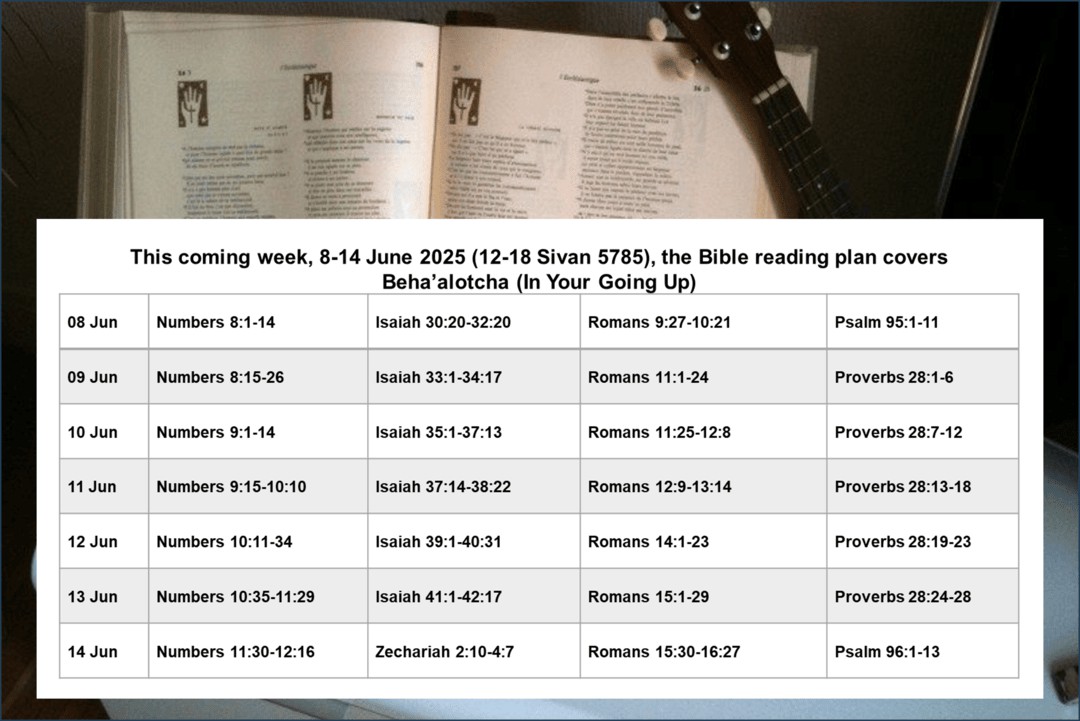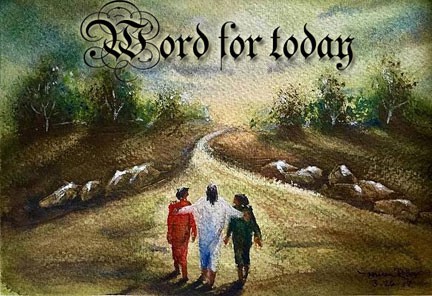Watch
Events
Articles
Market
More
Most of us are comfortable praying for healing or a new job, but we're comfortable with these prayers because if we don't get what we ask for, then maybe it just wasn't God's will. It gets a little dicier when we start asking God open ended questions, like "What do I do now?" in a really difficult situation. When we do send a prayer like that, we might read the Bible and meditate, but how seriously do we expect an answer?
God wants to talk to us. Moses and Paul both said that they desired all of God's people to prophesy, which is to be a conduit for messages directly from God. But how are we to prophesy if we never hear God's voice?
One of the defining characteristics of Shavuot (aka Pentecost) is direct communication between God and people. I think we can learn something about God's instructions to Israel and the Apostles before this great feast day about preparing ourselves to hear his voice.
https://rumble.com/vhi695-shav....uot-be-still-and-hea



This coming week, 8-14 June 2025 (12-18 Sivan 5785), the Bible reading plan covers Beha’alotcha (In Your Going Up).
https://thebarkingfox.com/2025..../06/06/weekly-bible-




This coming week, 8-14 June 2025 (12-18 Sivan 5785), the Bible reading plan covers Beha’alotcha (In Your Going Up).
https://thebarkingfox.com/2025..../06/06/weekly-bible-




The Levites were intended to be a buffer between the people and the raw power of God.
https://www.americantorah.com/....2012/06/good-fences-



060625
Day 48 of counting the omer. The number 4 symbolizes completeness and stability, representing the four corners of the earth and the four winds of heaven. Meanwhile, the number 8 represents new beginnings and rebirth, as it is the number of days required for a baby to be circumcised in YEHOVAH’S law. The combination of 4 and 8 can also represent the idea of a spiritual journey or cycle, encompassing the completion of one phase and the initiation of a new one. It suggests that individuals must go through cycles of growth and transformation to reach spiritual enlightenment and fulfillment.
WORD FOR TODAY “are these just words to you or more?”: Rth 1:16 But Ruth said, "Do not urge me to leave you or turn back from following you; for where you go, I will go, and where you lodge, I will lodge. Your people shall be my people, and your God, my God.
WISDOM FOR TODAY: Psa 37:28 For the LORD loves justice And does not forsake His godly ones; They are preserved forever, But the descendants of the wicked will be cut off.
www.BGMCTV.org



